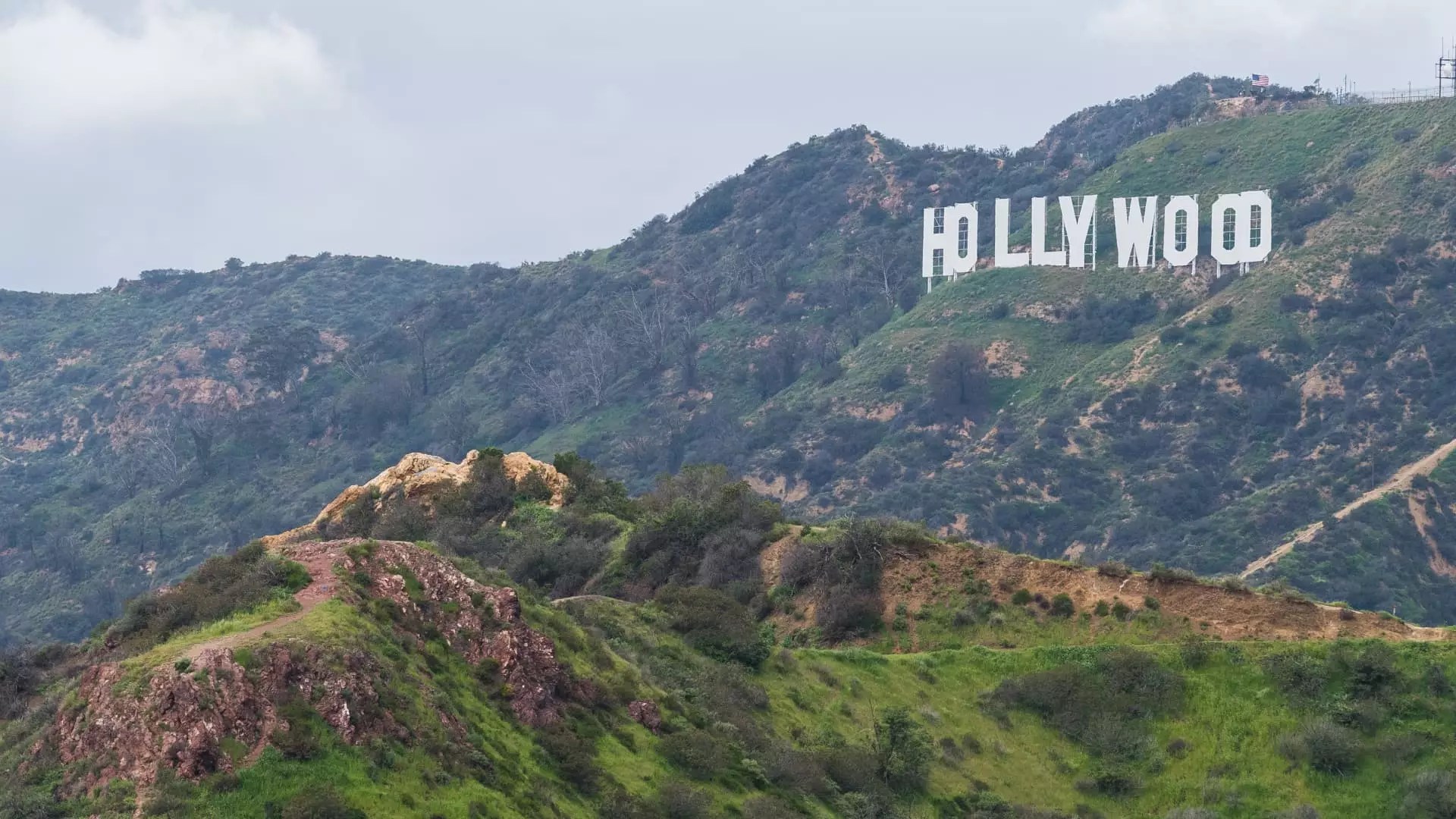President Donald Trump has recently stirred the pot with his audacious suggestion to impose a staggering 100% tariff on films produced abroad. This controversial move has sent tremors through Hollywood, leaving industry stakeholders questioning the rationale behind Trump’s policy. While he positions this as a “national security threat,” it fundamentally misunderstands the globalized nature of entertainment production. This sweeping tariff, if enforced, could have severely negative repercussions that risk damaging an industry that thrives on international collaboration and revenue.
Market Reactions: A Tidal Wave of Uncertainty
Immediately following Trump’s announcement, stocks for major studios and streaming platforms plummeted, with Netflix sinking over 5% and Disney downgrading by more than 3%. These market reactions aren’t just numbers on a screen; they symbolize the fear permeating the Hollywood ecosystem. The potential for a 100% levy raises worries about immediate costs, making it more precarious for studios to invest in overseas production. The economic ramifications could lead to a contraction within an industry that has already faced significant disruptions due to pandemic-related shutdowns.
A Flawed Understanding of Film Production Dynamics
Trump’s assertion that overseas film production poses a “national security threat” lacks foundational support and seems out of touch with the realities of cinematic art. Films are not easily translatable commodities like electronics or textiles. Instead, they are intricate expressions of culture, often requiring location shoots in diverse settings to celebrate global narratives. Tax incentives have acted as a critical component of this framework, helping studios maximize creativity while minimizing costs. A 100% tariff could effectively suffocate this innovative spirit, shifting away from authentic storytelling to generic, location-shifted narratives.
Implications for International Relations
The entertainment industry is not impervious to the repercussions of strained international relationships. Countries invest in film partnerships to nurture cultural diplomacy, and retaliatory measures could emerge as a response to America’s unilateral tariffs. As Trump districtively points fingers at foreign competition, Hollywood pays the price—especially when considering how crucial international markets like China have already begun to close their doors. This isolationist stance jeopardizes the industry’s ability to recover its investments and grow its audience base.
What’s Next for the Industry?
Amidst this upheaval, a fog of uncertainty clouds the production landscape. Questions loom large regarding the proposed tariff’s reach. Will it apply solely to theatrical films, or will television productions be caught in the crossfire? Furthermore, what about projects already completed before any potential enforcement? Such a murky environment fosters not just fear but indecision and could stall many planned productions, potentially leading to job losses in an industry that relies heavily on a vibrant creative workforce.
Without a doubt, the ramifications of Trump’s proposal to levy a 100% tariff on overseas films could spell disaster for Hollywood, impacting everything from job creation to cultural storytelling. The industry is caught in a precarious balance between creative expression and economic viability, and this latest political gambit threatens to upset that equilibrium immensely.


Leave a Reply